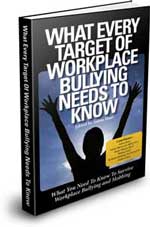 Not knowing where you place in the “job interview assembly line” is an important often-overlooked ingredient for job interview success. Several years ago, an interviewer informed me that I was the next to last candidate to be reviewed/interviewed for the position.
Not knowing where you place in the “job interview assembly line” is an important often-overlooked ingredient for job interview success. Several years ago, an interviewer informed me that I was the next to last candidate to be reviewed/interviewed for the position.
I didn’t think much about that. Then the interviewer informed me that the interview process had taken about 2 months because there were a little over 200 interviewees!
During the course of the interview, I could sense what I call “interviewer blindness”. The interviewer seemed to parrot questions at me from numerous previous repetitions rather than a genuine review of my qualifications. She also appeared to be on a “stop watch” and her body language was somewhat rushed. She was very forthcoming in lamenting the fact that she had averaged between 8 and 10 hour+ interviews a day, 5 days a week for 2 months!
So, I asked myself does this give me an advantage or disadvantage? If she has “interviewer burnout”, will she give me, interviewee number 200 the same level of crisp mental attentiveness to my responses as she did the first two or three? Will she be able to “listen” to me through all the noise of the previous applicants? Will she be desensitized from perceiving why my skills and qualifications are the best suited for the position?
Given these factors, I decided on a twofold strategy:
- Keep my responses short and to the point while inflecting my voice to really highlight my key accomplishments. I also interjected a pinch of frivolity to keep the interviewer from getting bored.
- I really zoned in on the questions I asked the interviewer about the job and the company.
Tactfully I asked very pointed interview questions such as…
- “Where does this company see itself in five years”?
- Are there any merger or buyout negotiations in the works that might impact the position I’m very much interested in”?
- “Does the company have a history of complaints filed against it with the state or (EEOC) Equal Employment Opportunity Commission”?
- “Knowing what you know now, would you have accepted employment with this company”?
Here’s a question that really perked her up, “Are you satisfied with the compensation package for your position”? I know conventional wisdom recommends not discussing salary until the interviewer does. However, this was not a conventional job interview. Besides, I wasn’t talking about my salary requirements for the job.
This person had quizzed and been quizzed by over 200 eager job seekers and I needed to give her a gentle jolt to set myself apart from the crowd! A good friend once told me, “Nothing gets a persons attention quicker than talking about their money or their honey”. Asking these types of questions seemed to “wake up” the interviewer. I believe these questions also set me apart from the other 200 candidates because the interviewer did not appear prepared to answer them.
The interviewer became more energetic, relaxed and focused. These questions also demonstrated I had done my research causing her to sell me on the position and the company. This is of course the way it should be as part of the “two-way street” interviewing process.
This is yet another example of what career seekers and employees should be aware of in their job search efforts. Most job hunters will probably never find themselves at the end of a 200-person job interview assembly line. However, it may be a good idea to ask the interviewer up front where you place in the job interview assembly line. This could help you devise a strategy to overcome potential “interviewer blindness and burnout” when marketing yourself for the job.











